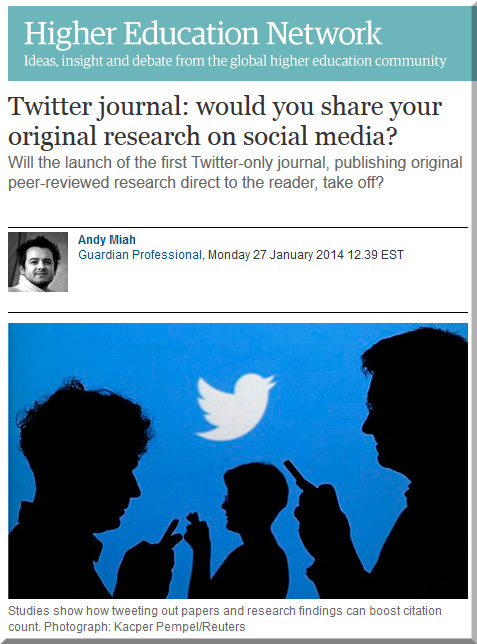What’s the point of academic publishing? — from chroniclevitae.com by Sarah Kendzior
Excerpt (emphasis DSC):
In December 2013, Nobel Prize-winning physicist Peter Higgs made a startling announcement. “Today I wouldn’t get an academic job,” he told The Guardian. “It’s as simple as that. I don’t think I would be regarded as productive enough.”
Higgs noted that quantity, not quality, is the metric by which success in the sciences in measured.
…
…
Making your work “count” on its own intellectual merit helps rescue you from the sense of personal failure that accompanies loss on the job market. When you orient your scholarship toward a future that never comes, it can start to feel like you have no future. When you orient your scholarship toward its obvious yet overlooked purpose—furthering human knowledge—its value does not need to be determined by others, because the value lies in the work itself. This is what counts.
Academic publishing is no guarantee of anything, except possibly the paywalled obsolescence of your work.
Also see:
Excerpt:
This is why it makes sense to create a Twitter-only journal, which would publish original, peer-reviewed research, direct to the reader. And that is what I have done: introducing the world’s first Twitter journal of academic research, aka @TwournalOf. Part philosophical provocation, part genuine intervention, I want to explore the willingness of researchers to share their original findings in a new format.
From DSC:
This Twitter account is just getting started. So there’s not much to see there…yet. I subscribed to it though, because it’s a potentially very useful idea; I like it because it takes education to where it belongs — to the public.
My thanks to Sidneyeve Matrix
(@sidneyeve) for the Tweet on this item.









